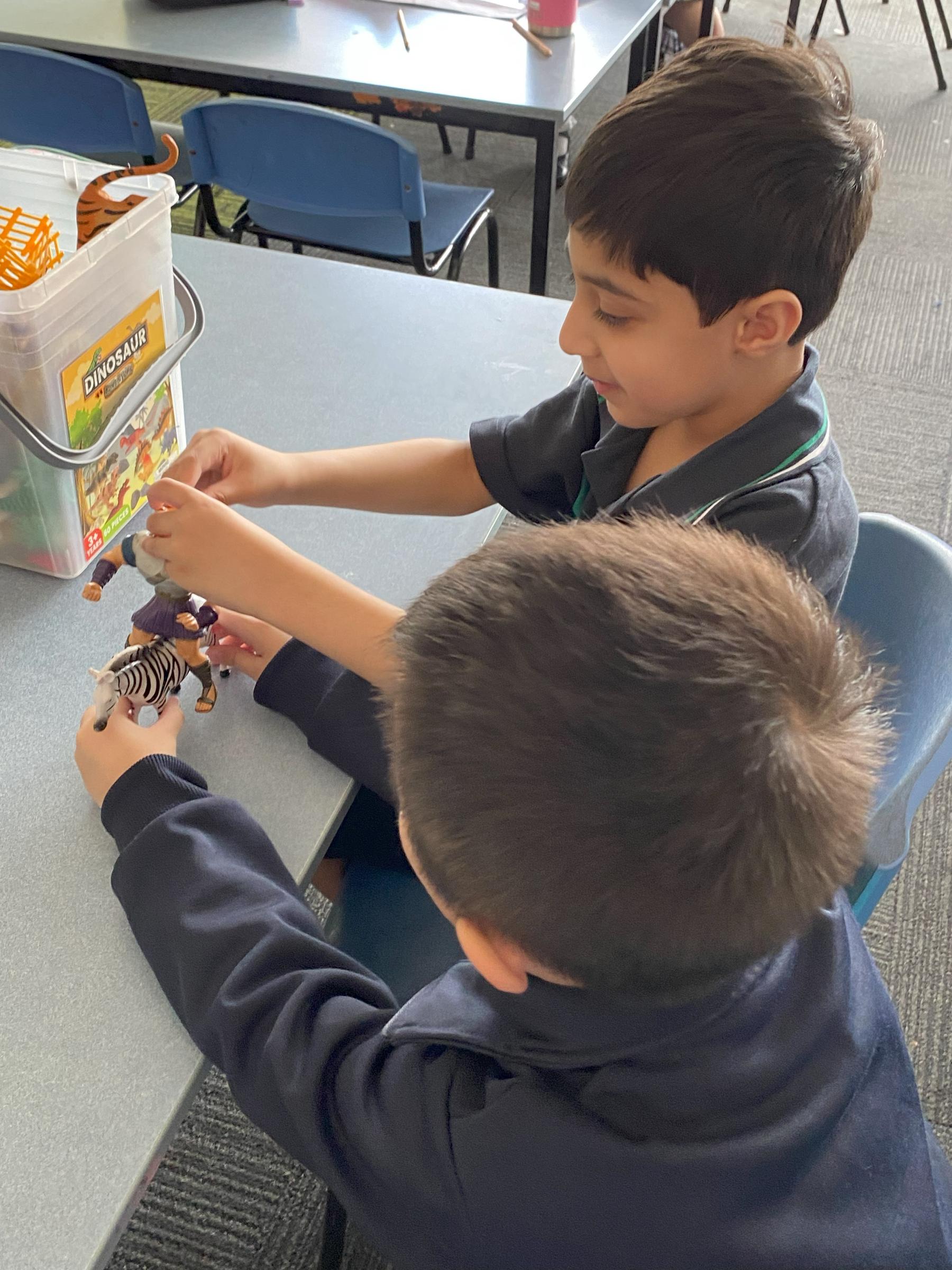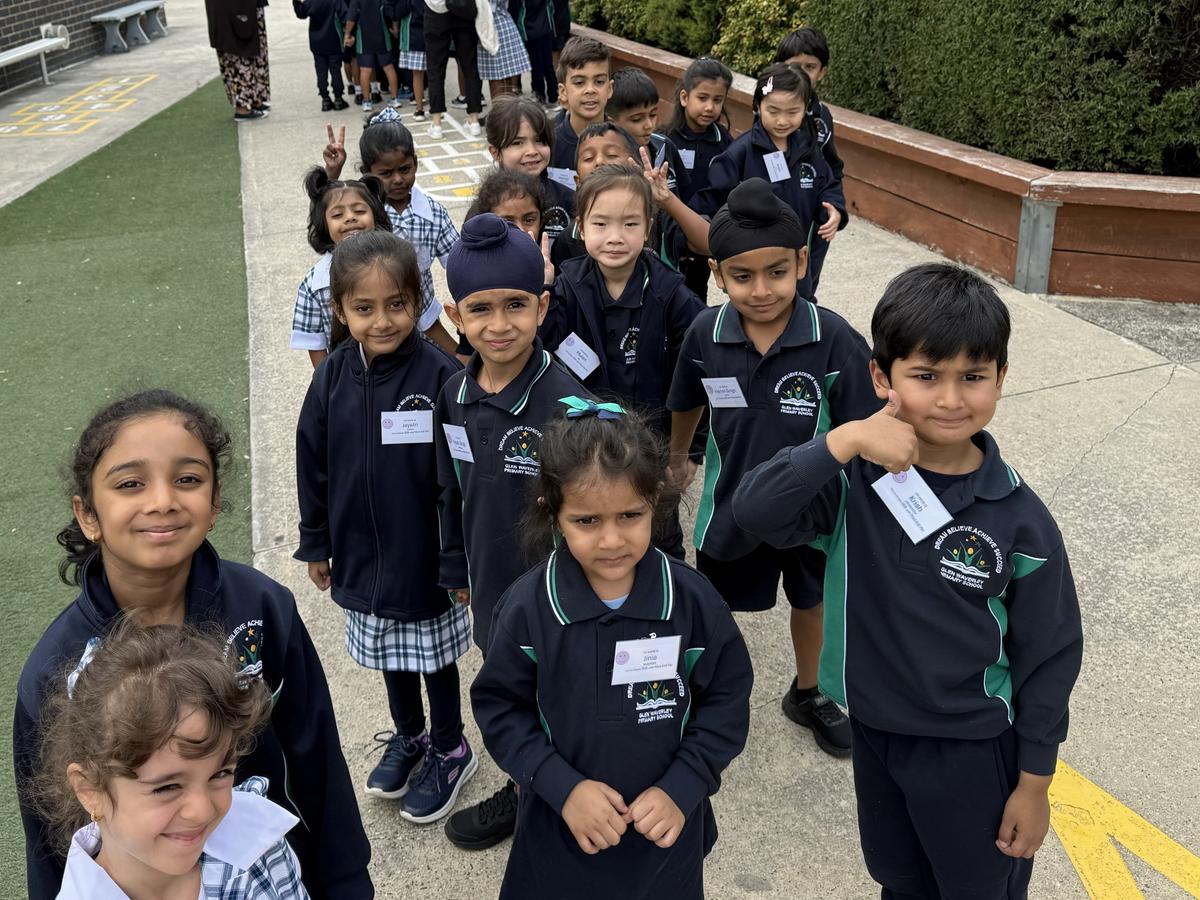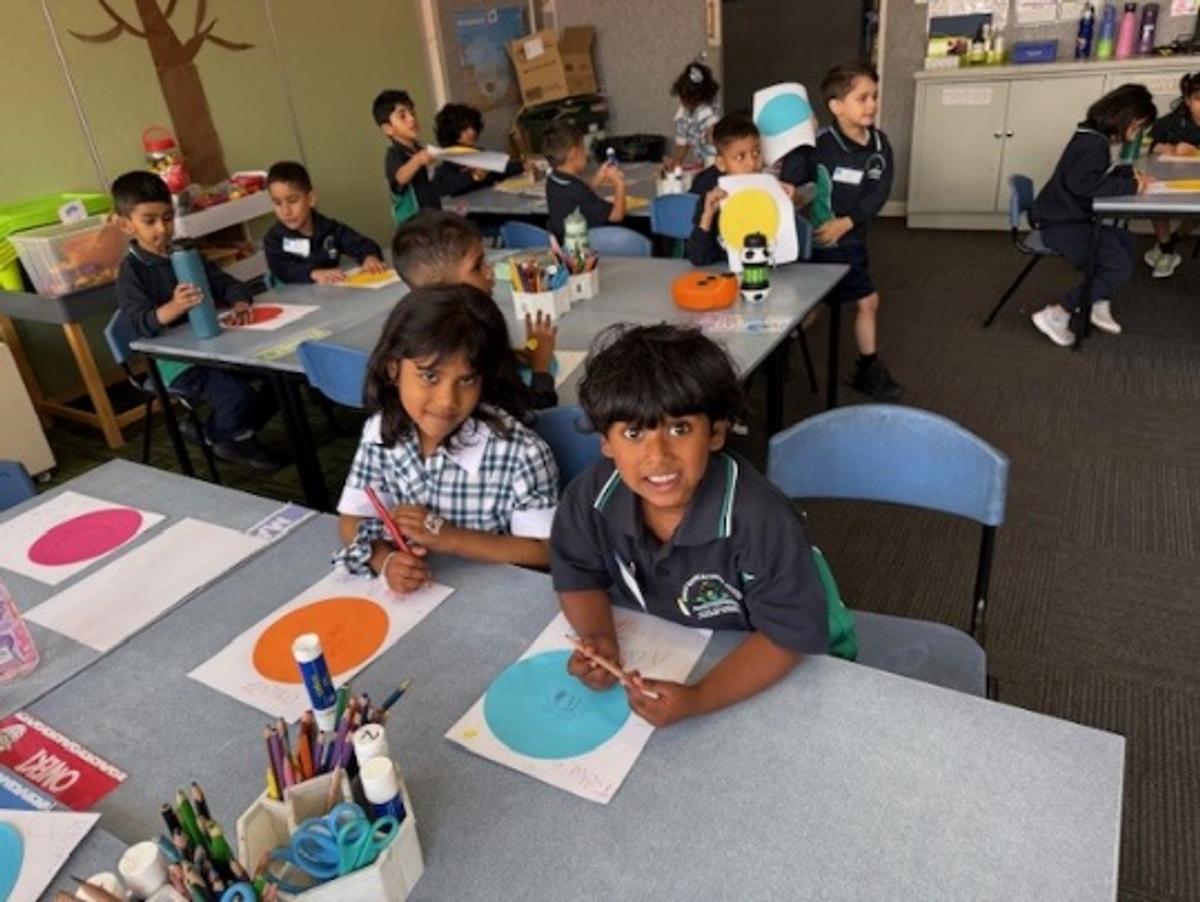Term 1

English
Initial Lit
During Term One, all students will be experiencing our explicit instruction approach to English through the program InitiaLit-F. Some of the key concepts covered in Term One include phonological awareness, oral language and phonemic awareness. This will lead to the exploration of the following letters and sounds in the following sequence: m, s, t, a, p, i ,f, r.
Key Vocabulary: sound, letter, segment, blend, syllable
- Read books to your child and clap out the syllables in words.
- Play rhyming word games “What word rhymes with ‘tap?’ It can be a made-up word.”
- Explore the different sounds in words, orally. “What sound can you hear in the word dog? /d/ /o/ /g/”
Writing
In Writing, Prep learners will be looking at dominant sounds in words when writing their own texts. During explicit mini lessons, they will look at letters and identify the different sounds they make to produce words. Students will be learning to write Victorian Modern Cursive script at school. Various learning tasks to support the development of fine motor control for handwriting will be practiced, such as play-dough, threading and tracing
Key Vocabulary: pencil grip, letter formation, finger spaces, direction (left to right)
How can you support your child’s English learning at home?
- Practice writing using correct pencil grip.
- Focus on correct letter formation in Home Learning Tasks
- Support your child to read their writing out loud or describe their pictures.
Mathematics
In Prep this term we will be exploring the following four units:
Pattern- Patterns involve a unit repeating over and over and over. For example blue, red, blue, red or hand, hand, foot, foot, hand, hand, foot, foot.
Measurement- Time- Attributes of an object can be measured using commonly-agreed units, such as days of the week or times of the day.
Counting and place value- The base ten numeration system is a scheme for recording numbers using digits 0-9, groups of ten, and place value.
Location- Objects have a position in the 2D space which can be changed and recorded. For example, “The couch is next to the table”.
Key Vocabulary: pattern, unit of repeat, weekdays, weekends, weekday, morning, lunchtime, afternoon, night time, sequence, first, last, next
How can you support your child’s Mathematics learning at home?
- Create patterns with everyday objects and identify the repeating unit in the pattern
- Talk about your daily schedule with your child. Create your own schedule or mark off the days on a calendar.
Inquiry
Question: How do we welcome and feel welcomed?
Global Goal: Good Health and Wellbeing
This term, learners will explore the topic ‘How do we welcome and feel welcomed?’ through the Global Goal lens of Good Health and Well-Being. The learning revolves around the theme of "Welcome." Initially, students explore the concept of welcome, understanding what it means, and how to create a welcoming environment. The students will develop their understanding of cultural diversity by learning greetings in different languages. Subsequent sessions focus on making others feel welcome, extending hospitality in 'Special Places’, and considering perspectives on being welcomed into others' ‘Special Place’. To end the unit, students will create symbolic artifacts representing welcome, with the inclusion of parents.
Key Vocabulary: welcome, special place, greeting, inclusive, developmental play
How can you support your child’s Inquiry learning at home?
Ask your child what makes them feel welcome “How would you like to be welcomed into someone’s special space?”
Discuss with your child how your welcome people into your house or special place.
Ask your child, “How do I make someone feel welcome into my space?”
Discuss with your child what is a special place. This may involve storytelling and collective knowledge of your own experiences.
Wellbeing
The Resilience Project
We are continuing with The Resilience Project schools program in our school. The Resilience Project schools program has been designed by teachers for teachers and has been evaluated by the University of Melbourne. Through presentations, student curriculum, teacher resources and digital content, The Resilience Project’s Education Programs support mental health in the classroom, staffroom and family home. The program is committed to teaching positive mental health strategies to prevent mental ill-health and build young people’s capacity to deal with adversity.
The Resilience Project Early Years Program is a positive mental health program which focuses on the Resilience Project’s key pillars of Gratitude, Empathy, Mindfulness and Emotional Literacy (GEM). The program aims to build mental resilience and wellbeing amongst educators, children, parents/carers, and the community. You can explore The Resilience Project at Home Hub here.
Gratitude
Paying attention to the things we have right now, and not worrying about what we don't have. We practice gratitude by noticing the positives around us.
Empathy
Putting ourselves in the shoes of others so we feel what they are feeling. We practice empathy by being kind and compassionate towards other people.
Mindfulness
Our ability to be calm and in the present moment. We practice mindfulness by slowing down and concentrating on one thing at a time.
Emotional Literacy
Our ability to label our emotions, which helps us to soften negative emotions and find positive emotions. We practice emotional literacy by labelling our emotions as we experience them.
Students will be receiving a GEM certificate at our school assembly and in class throughout the year.
The program consists of short videos focusing on positive mental health and wellbeing strategies. Each video is accompanied by reflection activities that teachers present to their students.
Cyber Safety Project
In Term One, our Prep students will begin a new and exciting journey focused on Cyber Safety, with an emphasis on the theme of Responsibility. This project will help our students develop essential digital literacy skills, while also encouraging them to think critically about their actions and well-being in the online world. Throughout the term, we will explore important concepts such as how to use the internet safely and responsibly, recognising when something might not feel right, and knowing what to do in those situations.
A key part of this project will be helping students understand the importance of making smart choices online, and how they can protect their privacy and security. By discussing topics such as safe online behavior, the role of trusted adults, and the importance of keeping personal information secure, we aim to empower our students to navigate the digital world with confidence and care. This program is not only about developing technical skills, but also about fostering a sense of responsibility and awareness that will benefit our students both online and offline.
How can you support your child’s Wellbeing learning at home?
- Encourage your child to pack and unpack his/her bag independently.
- Ask your child “What went well today?” at the end of the school day.
- Have a conversation about the friendships your child has made at school including ways they have played respectfully.
Talk about the strategies they have learnt at school to cooperate and get along.
Model positive self-talk when faced with challenges or when making mistakes to mirror.


